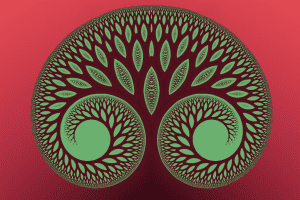Unfortunately, life has not always been kind to Zahid Bashir and Sobia Qureshi. The couple lost two children to Pompe disease, a rare genetic disease caused by GAA gene mutations. Although treatment options for Pompe disease have improved over the years, it can still be difficult to treat infantile-onset Pompe disease; this form often leads to heart damage in utero before a child is even born. So when Sobia and Zahid learned that they were having another child, Ayla, who also had Pompe disease, they were concerned – what would happen to their daughter?
According to an article in Science, as the parents thought about how to help their daughter, Tippi Mackenzie was thinking up novel therapeutic options for infants like Ayla. Tippi is a pediatric and fetal surgeon whose focus is on diagnosing and treating genetic disorders prior to birth. Her team, from the University of California – San Francisco (UCSF), had previously explored the idea of infusing enzymes directly into a fetus’ umbilical cord.
Saving Ayla
In mice models of lysosomal storage disorders, infusing an enzyme into the umbilical cord contributed to better outcomes and overall survival. This approach could help the body accept the synthetic proteins, avoid brain damage, and improve survival. So, Tippi thought, why couldn’t this same method work in infants with Pompe disease by infusing acid alpha-glucosidase (GAA)?
Zahid and Sobia had enrolled in a clinical trial around this process to see if they could save Ayla. The research team worked closely with the family’s care team in Ottawa to administer the therapy. Sobia began receiving the enzyme therapy when she was 24 weeks pregnant and received enzyme therapy six separate times over the remainder of her pregnancy.
And then – Ayla was born. At birth, she showed no signs of heart issues. In fact, she showed no signs or symptoms of Pompe disease at all. The family and her care team paid close attention to Ayla as she grew older. But she seemed happy, healthy, and able to hit milestones. At 11.5 months old, Ayla began walking. Now, at sixteen months old, she remains a bubbly infant.
Although Ayla still requires enzyme therapy, her outcome thus far is, for all intents and purposes, stunning. Currently, Ayla’s story is considered a “medical first.” The researchers have administered GAA to two more fetuses and are still waiting to learn more about the outcomes. Unfortunately, the research cannot yet predict whether this therapy will continue to work as the children age; Ayla and the other participants will be observed over time. However, even if the therapy does not continue to work in later years, the research team hopes that this GAA administration can at least keep them healthy until other therapeutic options are available.
What is Pompe Disease?
Pompe disease is a rare genetic disorder caused by GAA gene mutations. These mutations prevent the body from properly processing glycogen, a type of complex sugar. As a result, glycogen accumulates in cells, causing damage. Pompe disease can be considered classic infantile-onset, non-classic infantile-onset, or late-onset. However, some may refer to Pompe disease as either infantile-onset or late-onset, with late-onset referring to any form in which heart damage is not present or less likely; infantile-onset often comes with heart damage. Without treatment, Pompe disease can be fatal. Symptoms and characteristics of Pompe disease can (but do not always) include:
- Hypotonia
- Enlarged liver and tongue
- Joint stiffness
- Developmental delays
- Exercise intolerance
- Shortness of breath
- Poor weight gain
- Difficulty breathing and swallowing
- Frequent lung infections
- Poor head and neck control (in infants)
- Muscle weakness






